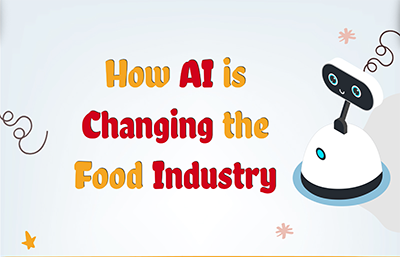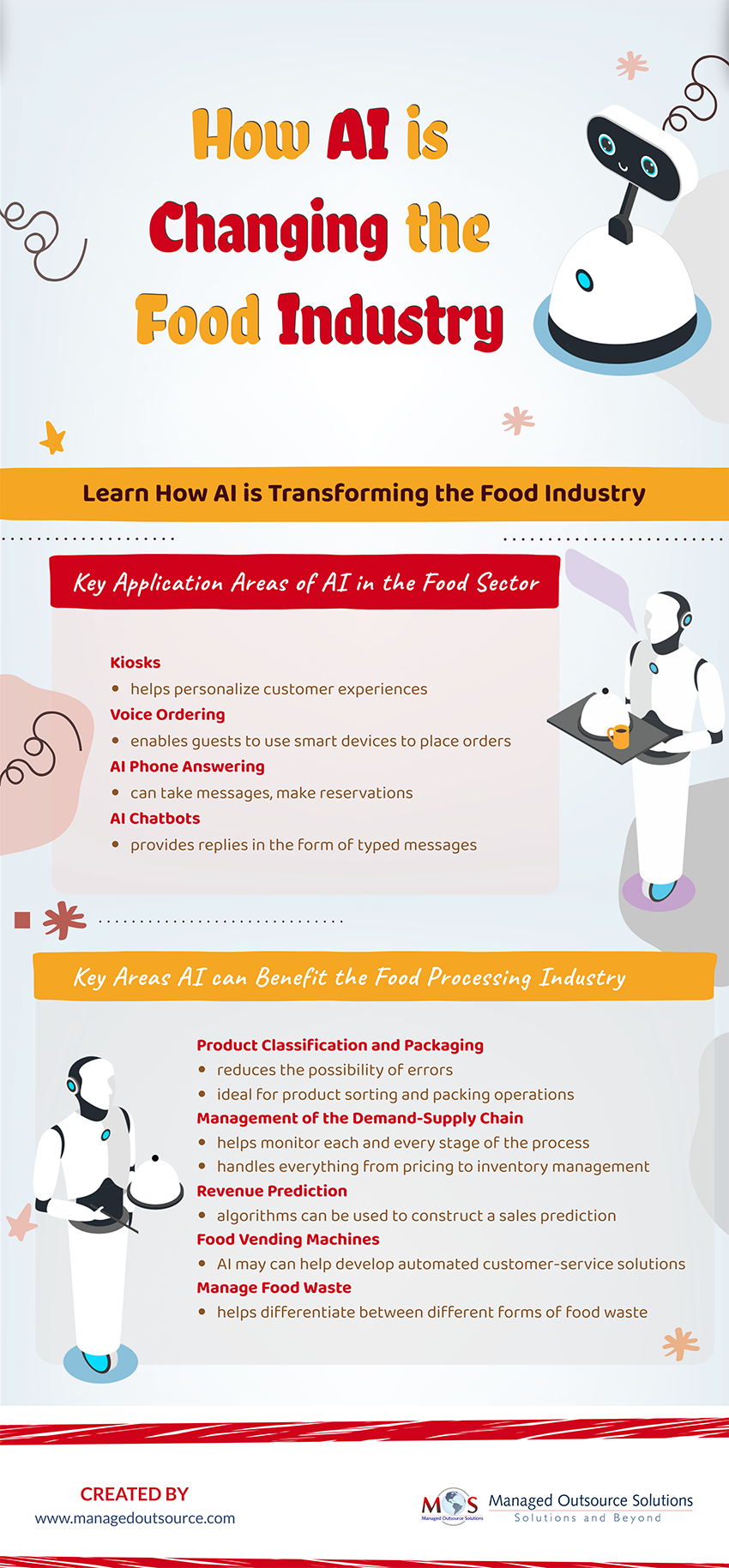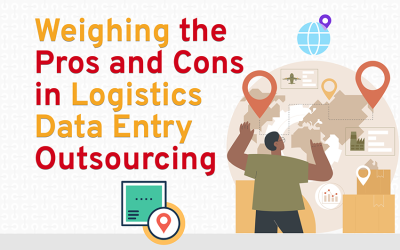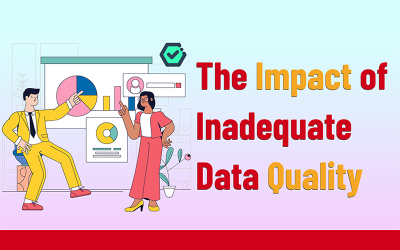While human labor supports the effective execution of food production and packaging, there are certain challenging situations food processing companies face as they strive to meet the demand-supply cycle. Industrial automation can help address the growing challenges in this sector. Adopting AI-based technology systems in the food sector helps in efficient and effective handling of food manufacturing and distribution procedures. Food processing companies can combine RPA services along with AI to automate their operations from end to end. Artificial intelligence (AI), machine learning (ML), and deep learning (DL) algorithms are major automation trends. The main benefits of using AI solutions in the food processing industry include cost savings, reduced human errors, options to find new customers, customize orders, and increased market reach.
Artificial intelligence is here to stay. Food processing companies can rely on business process outsourcing services to combine RPA and AI to fully automate their operations from end to end,
Check out the infographic below





